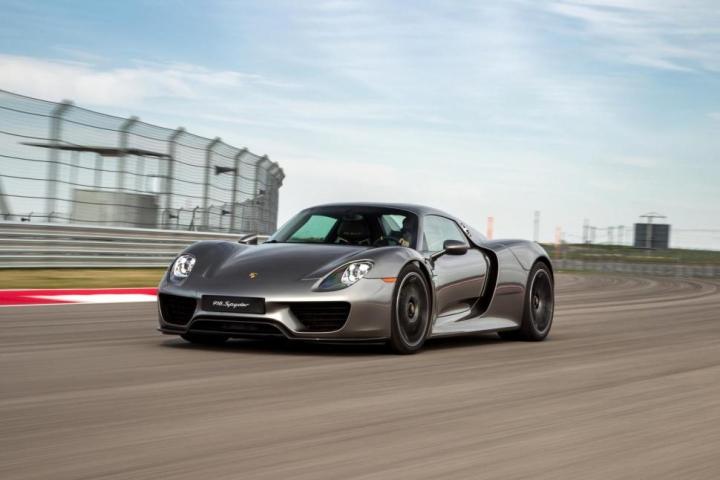
But don’t worry, purists. Your 911s and Caymans are safe.
Dr. Ulrich Hackenberg, the Research and Development Chief for Audi, recently displayed the following graphic at VW Group’s annual conference. The image comes courtesy of Autocar.
As you can see, there are spots reserved for a BEV (Battery Electric Vehicle) and an FCEV (Fuel Cell Electric Vehicle) in the Porsche row. They could be placeholders with no real implications, but that’s doubtful. More likely is that they signify a new endeavor for the brand.
Porsche currently has three hybrid vehicles: the Porsche 918 Spyder (pictured), Cayenne S E-Hybrid, and the Panamera S E-Hybrid. EVs and FCVs, however, are a whole new ball game.
Given Porsche’s relationship with Audi (fresh off the debut of the R8 e-tron) and Volkswagen (who is currently developing a hydrogen car), Stuttgart will have a bevy of technology from which to choose. The brand has also flirted with electric technology before with the Boxter E prototype.
The Pajun is expected to show up around 2019, and would effectively be a smaller version of the current Panamera. Gas and diesel versions will reportedly be available as well, with the electric version taking the Tesla Model S head on.
Dr. Hackenberg also used the conference to detail the new technologies that will be available on the next Audi A8. The features will include various sensors and other pieces of autonomous gadgetry. He expects ‘piloted driving’ version of smaller cars (like the Golf) to be ready for the road around 2020.



